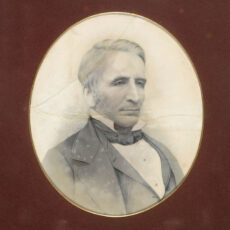Yeah, I read about that on Facebook”. It’s a phrase that is becoming more common in everyday conversation, particularly when discussing news.
In so many ways, it can also be a misleading choice of words.
Yes, the person may have read a news report while on the social media platform, but it is almost certain that information was generated elsewhere.
Facebook doesn’t employ journalists to engage with local communities and report information relevant to readers. The Courier does.
Facebook, as a US-based tech giant, doesn’t have a physical presence in Narrabri. The Courier does.
Facebook doesn’t attend the local meetings and events that matter – like the successful Narrabri Races – and report on what happens. The Courier does.
Facebook will not report on local football codes. The social media giant won’t be on the sidelines taking action photos of the Blue Boars or the Blues.
Nor will it be at the Narrabri Show in May. Or at the Narrabri Chamber of Commerce Business Awards.
Facebook doesn’t campaign on the important social issues or infrastructure needs of local communities. The Courier does.
Facebook doesn’t support great local causes like the Stars of Narrabri. The Courier does.
Yes, The Courier and other media organisations use Facebook as one of the many platforms to disseminate news, along with print products and various websites.
But the news people read on Facebook is produced elsewhere; by companies like The Courier that pay people to provide that service.
The Courier employs 16 staff and engages paper boys and girls to deliver the newspaper across Narrabri.
Facebook has for years happily hosted our more legitimate and responsible content and made trillions of dollars globally from the eyeballs it attracts.
A few years back industry heavyweights lobbied hard for the federal government to establish a News Media Bargaining Code that compelled Facebook to start paying for this news content.
The funding that came out of that agreement allowed the broader media industry to employ more journalists and invest in more resources.
Facebook has now signalled that it will be walking away from that hard-fought agreement, a move that will cost local jobs and may force some local media outlets to the wall.
The decision by Meta to stop paying for the news it allows to be shared across Facebook and Instagram will have a direct impact on publishers and the support offered to readers and communities. It is the same for every small country newspaper across Australia.
It may not seem such a big deal that the news tab on Facebook will disappear, but what if they decide to block all news services, like Meta has done in Canada?
Is it okay that a massive US company can hold Australian governments and businesses to ransom like this?
This decision should be a warning to all small businesses and organisations that use Facebook or Instagram as their only digital platform. What happens if Meta next randomly decides to charge hairdressers for business pages, or block community events?
Not paying fairly for news, and then threatening to block access to media on their platforms is blackmail.
This isn’t just a squabble between giants; it’s about the survival of small newspapers. It’s about the sustainability of publications that give rural and regional people a voice and record the history of the towns in this region.
This isn’t just about The Courier; it’s about fair compensation for the news produced by local journalists across Australia.
Stand with The Courier, stand with your local paper.
To order photos from this page click here


Facebook’s decision matters to Narrabri
Apr 3, 2024
Yeah, I read about that on Facebook”. It’s a phrase that is becoming more common in everyday conversation, particularly when discussing news.
In so many ways, it can also be a misleading choice of words.
Yes, the person may have read a news report while on the social media platform, but it is almost certain that information was generated elsewhere.
Facebook doesn’t employ journalists to engage with local communities and report information relevant to readers. The Courier does.
Facebook, as a US-based tech giant, doesn’t have a physical presence in Narrabri. The Courier does.
Facebook doesn’t attend the local meetings and events that matter – like the successful Narrabri Races – and report on what happens. The Courier does.
Facebook will not report on local football codes. The social media giant won’t be on the sidelines taking action photos of the Blue Boars or the Blues.
Nor will it be at the Narrabri Show in May. Or at the Narrabri Chamber of Commerce Business Awards.
Facebook doesn’t campaign on the important social issues or infrastructure needs of local communities. The Courier does.
Facebook doesn’t support great local causes like the Stars of Narrabri. The Courier does.
Yes, The Courier and other media organisations use Facebook as one of the many platforms to disseminate news, along with print products and various websites.
But the news people read on Facebook is produced elsewhere; by companies like The Courier that pay people to provide that service.
The Courier employs 16 staff and engages paper boys and girls to deliver the newspaper across Narrabri.
Facebook has for years happily hosted our more legitimate and responsible content and made trillions of dollars globally from the eyeballs it attracts.
A few years back industry heavyweights lobbied hard for the federal government to establish a News Media Bargaining Code that compelled Facebook to start paying for this news content.
The funding that came out of that agreement allowed the broader media industry to employ more journalists and invest in more resources.
Facebook has now signalled that it will be walking away from that hard-fought agreement, a move that will cost local jobs and may force some local media outlets to the wall.
The decision by Meta to stop paying for the news it allows to be shared across Facebook and Instagram will have a direct impact on publishers and the support offered to readers and communities. It is the same for every small country newspaper across Australia.
It may not seem such a big deal that the news tab on Facebook will disappear, but what if they decide to block all news services, like Meta has done in Canada?
Is it okay that a massive US company can hold Australian governments and businesses to ransom like this?
This decision should be a warning to all small businesses and organisations that use Facebook or Instagram as their only digital platform. What happens if Meta next randomly decides to charge hairdressers for business pages, or block community events?
Not paying fairly for news, and then threatening to block access to media on their platforms is blackmail.
This isn’t just a squabble between giants; it’s about the survival of small newspapers. It’s about the sustainability of publications that give rural and regional people a voice and record the history of the towns in this region.
This isn’t just about The Courier; it’s about fair compensation for the news produced by local journalists across Australia.
Stand with The Courier, stand with your local paper.